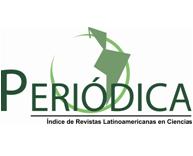SELECTION OF CHEMICAL TREATMENT PROGRAM FOR OILY WASTEWATER
Keywords:
chemical treatment, oily wastewater, coagulation, flocculationAbstract
When selecting a chemical treatment program for wastewater to achieve an effective flocculation and coagulation is crucial to understand how individual colloids interact. The coagulation process requires a rapid mixing while flocculation process needs a slow mixing. The behavior of colloids in water is strongly influenced by the electrokinetic charge, where each colloidal particle carries its own charge, which in its nature is usually negative. Polymers, which are long chains of high molecular weight and high charge, when added to water begin to form longer chains, allowing removing numerous particles of suspended matter. A study of physico-chemical treatment by addition of coagulant and flocculant was carried out in order to determine a chemical program for oily wastewater coming from the gravity separation process in a crude oil refinery. The tests were carried out in a Jar Test equipment, where commercial products: aluminum polychloride (PAC), aluminum sulfate and Sintec D50 were evaluated with five different flocculants. The selected chemical program was evaluated with fluids at three temperatures to know its sensitivity to this parameter and the mixing energy in the coagulation and flocculation. The chemical program and operational characteristics for physico-chemical treatment with PAC were determined, obtaining a removal of more than 93% for suspended matter and 96% for total hydrocarbons for the selected coagulant / flocculant combination.




















